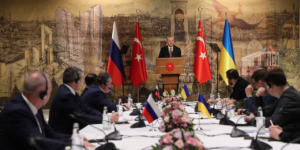A Fragile Calm: Examining the Recent India-Pakistan Ceasefire and its Implications
The recent period of heightened tensions between India and Pakistan, marked by India’s “Operation Sindoor,” has given way to a fragile ceasefire. This development, while bringing a welcome respite from the threat of escalation, raises several critical questions about the nature of India-Pakistan relations, the effectiveness of military action, and the role of international diplomacy.

India’s Operation Sindoor and its Aftermath
The immediate trigger for the tensions was India’s “Operation Sindoor,” a military response to cross-border terrorism. The Indian Armed Forces have released details indicating that this operation involved strikes against terrorist hideouts and Pakistani air bases. The release of satellite imagery showcasing the impact of these strikes underscores the precision and intensity of India’s response. This operation seemingly aimed to send a strong message to Pakistan about the consequences of supporting or harboring terrorist elements.
The Complexities of Ceasefire
However, the path from heightened military action to a ceasefire is complex. Reports indicate that Prime Minister Modi conveyed a firm stance to US Vice President JD Vance, stating that India would retaliate strongly if attacked by Pakistan, even amidst the ceasefire. This suggests that while India is committed to de-escalation, it remains prepared to act decisively in the face of any provocation. This stance likely plays a role in maintaining the fragile calm.
The Role of International Context
The international context also plays a significant role. The announcement of a temporary suspension of reciprocal tariffs between the United States and China coincides with this ceasefire. While the direct link between these two events may not be explicitly stated, it suggests a broader global environment where de-escalation and stability are being prioritized. Major powers often exert influence, directly or indirectly, to prevent conflicts that could have wider regional or global repercussions.
Domestic and Economic Ramifications
Domestically, the situation has had ripple effects. The National Commission for Women (NCW) condemning the online trolling of Foreign Secretary Vikram Misri and his daughter highlights the societal impact of international tensions. It underscores how such events can inflame passions and lead to harmful behavior, even far removed from the conflict zone. The positive surge in the Indian stock markets, Sensex and Nifty, following the ceasefire and the US-China trade deal, reveals the economic dimension. Stability, or even the prospect of it, is often welcomed by markets, which thrive on predictability and reduced risk.
Conclusion: A Delicate Balance
In conclusion, the current ceasefire between India and Pakistan represents a delicate balance. While military action may have served its purpose in signaling resolve, the path forward requires a sustained commitment to dialogue and diplomacy. The international community, and the internal dynamics within both nations, will continue to play a crucial role in determining whether this fragile calm can evolve into a more lasting peace. The situation remains complex, with both the potential for further escalation and the opportunity for meaningful progress.










